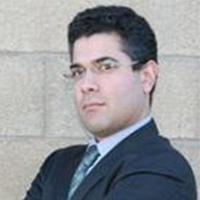Paonia Misdemeanor Lawyer, Colorado
Not enough matches for Paonia Misdemeanor lawyer.
Below are all Paonia Criminal lawyers.
Brandon U. Luna
✓ VERIFIEDCriminal, Divorce & Family Law, Estate, Traffic, Juvenile Law
At LunaLaw, LLC, we focus all of our resources on providing exceptional client service in the full range of criminal defense and family law matters. N... (more)
Peter A Rachesky
✓ VERIFIEDBankruptcy, Criminal, Divorce & Family Law, Lawsuit & Dispute, Traffic
Peter Rachesky is a practicing lawyer in the state of Colorado.
Michael Patrick O'Loughlin
Landlord-Tenant, Divorce & Family Law, Misdemeanor, Business
Status: In Good Standing Licensed: 18 Years
Brian Kidnay
Real Estate, Estate, Divorce & Family Law, Misdemeanor
Status: In Good Standing Licensed: 31 Years
Mark Samuel Rubinstein
Family Law, Divorce & Family Law, Criminal, Accident & Injury
Status: In Good Standing



